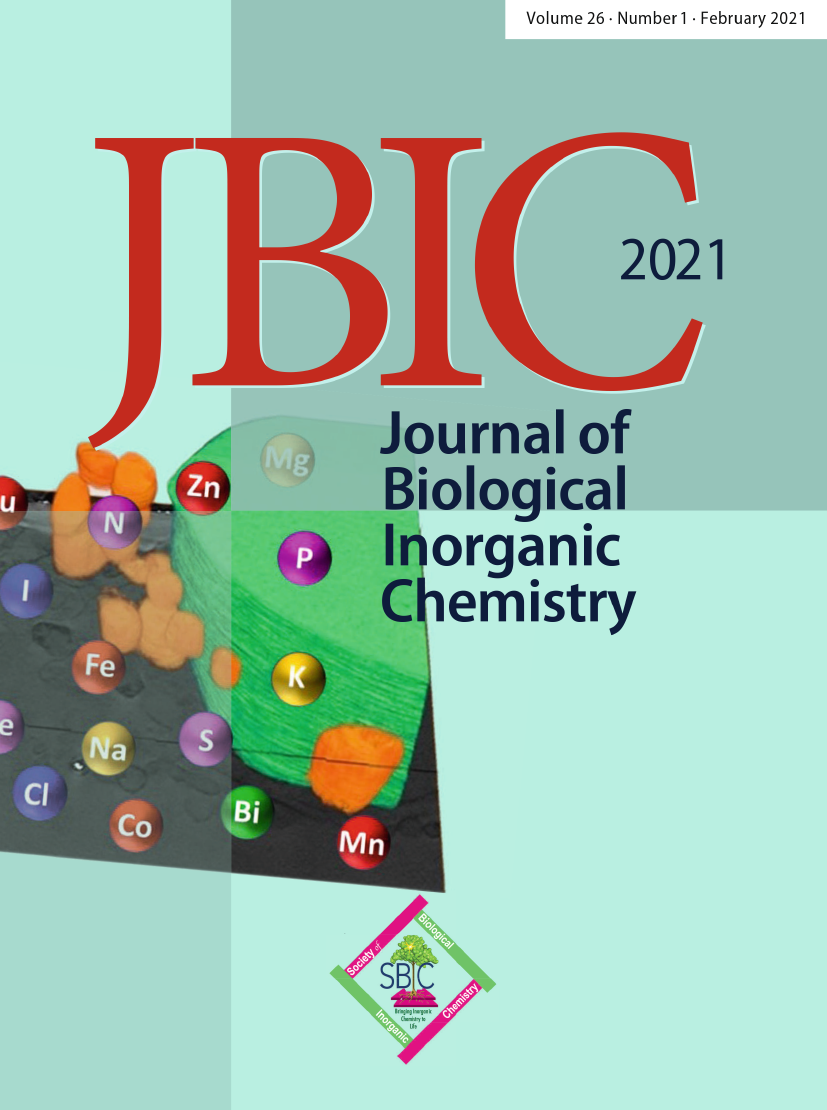Selective binding and removal of copper from biological fluids—why are PSP ligands so efficient?
IF 2.7
3区 化学
Q3 BIOCHEMISTRY & MOLECULAR BIOLOGY
引用次数: 0
Abstract
The following comment tries to answer why the reported removal of copper from buffer, cell culture medium, and cell extract by a supported chelator called phenPS is so selective and efficient. It is further argued that the family of PSP (phosphine sulfide-stabilized phosphines) chelators, due to their unique properties, have various potential future application in biology and medicine such as chelation therapy, copper-sensors, or tools to understand copper metabolism.
生物流体中铜的选择性结合和去除——为什么PSP配体如此有效?
下面的评论试图回答为什么报道中使用一种称为phenPS的螯合剂从缓冲液、细胞培养基和细胞提取物中去除铜是如此有选择性和高效。本文进一步认为,PSP(硫化磷稳定磷化氢)螯合剂家族由于其独特的性质,在生物学和医学上具有各种潜在的应用前景,如螯合治疗、铜传感器或了解铜代谢的工具。
本文章由计算机程序翻译,如有差异,请以英文原文为准。
求助全文
约1分钟内获得全文
求助全文
来源期刊

Journal of Biological Inorganic Chemistry
化学-生化与分子生物学
CiteScore
5.90
自引率
3.30%
发文量
49
审稿时长
3 months
期刊介绍:
Biological inorganic chemistry is a growing field of science that embraces the principles of biology and inorganic chemistry and impacts other fields ranging from medicine to the environment. JBIC (Journal of Biological Inorganic Chemistry) seeks to promote this field internationally. The Journal is primarily concerned with advances in understanding the role of metal ions within a biological matrix—be it a protein, DNA/RNA, or a cell, as well as appropriate model studies. Manuscripts describing high-quality original research on the above topics in English are invited for submission to this Journal. The Journal publishes original articles, minireviews, and commentaries on debated issues.
 求助内容:
求助内容: 应助结果提醒方式:
应助结果提醒方式:


